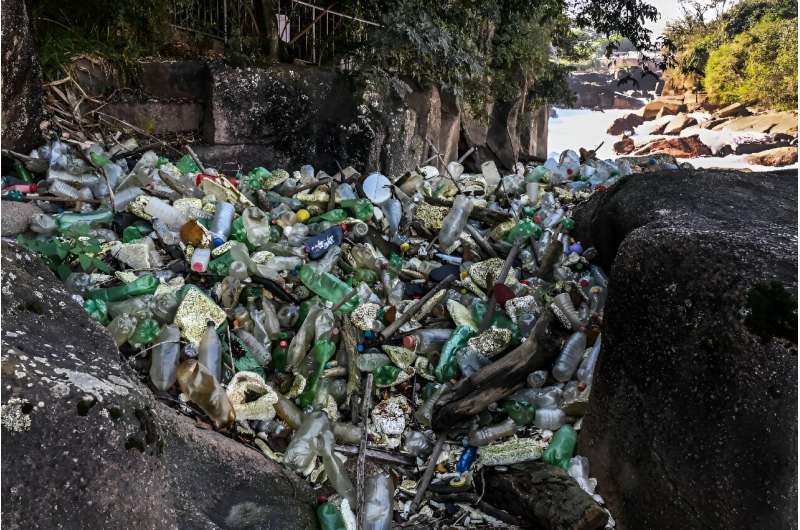This article has been reviewed according to Science X's editorial process and policies. Editors have highlighted the following attributes while ensuring the content's credibility:
fact-checked
reputable news agency
proofread
Fiji minister urges 'quicker' plastic pollution treaty

The world must move faster on a plastic pollution treaty that is currently not expected to be finalized before the end of next year, Fiji's deputy prime minister told an international summit on Thursday.
A draft of the treaty on reducing global plastic pollution was unveiled last month and will form the basis for several rounds of negotiations, including next month in Nairobi.
But Viliame Gavoka, who also serves as Fiji's tourism minister, said small, developing island states like his needed quicker action.
"I would urge that we try and wrap this up ASAP," he told the Global Plastics Summit in Bangkok.
"I'm told that it will take another 15 months after Kenya, but I would urge that we do it quicker than that."
Tourism accounts for 40 percent of Fiji's GDP, but the industry depends on visitors attracted by the promise of a pristine natural environment.
That is increasingly compromised by plastic washing up along the country's shore, he said.
"Plastics is the biggest threat to our economy and our livelihoods," he added.
Range of options
The draft plastic pollution treaty contains a range of options, or so-called low- to high-ambition pathways.
The plastics industry and top plastic-producing countries are keen to put the focus on reuse and recycling, despite problems including the fact that most plastic can only be recycled a handful of times before becoming unusable.
Activists and some countries instead want tougher measures upstream, including taxes and potential caps on new plastic production.
How those differences are navigated will be key to whether an effective treaty can be reached, said Peter Thomson, the UN secretary-general's special envoy for the ocean.
"We have to see this treaty as something that has ambition for us to be making peace with nature," he told the summit.
"Is this treaty going to be part of that peace process or is it going to be a cozy accommodation with the plastic industry?"
Global plastic production has more than doubled since the start of the century to reach 460 million metric tons, and it could triple by 2060 if nothing is done. Only nine percent is currently recycled.
Microplastics have been found everywhere from clouds to the deepest sea trenches, as well as throughout the human body.
The effects of plastics on human health remain poorly understood, but there is growing concern among scientists.
"The evidence is mounting that it is damaging to human health," said Thomson.
"What I would ask the negotiators to be ruled by when they turn up in Nairobi and thereafter is intergenerational justice, what we are creating for our children."
© 2023 AFP




















